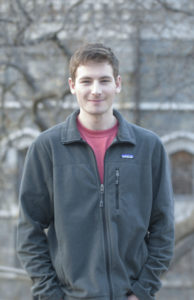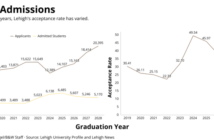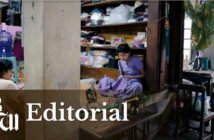
Jake Epstein
Seven years ago today, the eyes of the world were focused on the Middle East as it underwent historic change.
When the Tunisian government was overthrown in January 2011, a series of revolutions and uprisings occurred within Middle Eastern and North African countries. The majority of these protests began that February.
One protest succeeded another. Some were peaceful, some were violent and bloody.
Taking the form of demonstrations, riots, coups or foreign interventions, these protests would eventually be known as the “Arab Spring.”
From governments being overthrown in Tunisia and politicians enacting major reform in Kuwait, to devastating civil wars in Syria and Libya, the results of the revolutions varied from country to country.
Political corruption, economic decline and extreme poverty were only a few of the many causes that led to discontent throughout the region.
While this occurred, the overwhelming factor that united people was not just ideological grievances. People were united by the widespread access to social media as an integral platform for people to plan rallies and protests.
According to data from “The National,” Facebook usage completely skyrocketed in the Arab region between the months of January and April 2011. Other social media platforms, like Twitter and WhatsApp, also served as spaces for people to organize and mobilize while spreading opinions in an attempt to influence change.
The most popular hashtags on Twitter for that time period were “Egypt,” “Jan25,” “Libya,” “Bahrain” and “protest.”
As I reviewed this data, I thought back to one morning when I walked into class as an uninformed seventh grader. My teacher explained to the class that there were people on another continent who were using Facebook to fight for their lives.
I was struck because I had just created my own account earlier that year, and the only thing I used it for was posting about snow days with my friends.
It seemed foreign to me that social media could be used in such dire circumstances as a way to start a revolution.
Seven years later, here I am and the only social media platform I really use is Instagram.
But now I’m curious. At what point does a society rely on technology to preserve fundamental human rights?
“In a free society like ours you can organize a movement in person, but in a less free society there are much bigger barriers,” said Jeremy Littau, an associate professor of journalism and communications at Lehigh. “People can organize for action using these tools.”
He’s not wrong. The beauty of the Internet is that it can be reached from wherever, whenever. Carriers continuously brag and compete for ultimate wireless and data coverage.
We live in a society where social media dominates our lives. Today, everyone has a smartphone. Some people even wear computers on their wrists in the form of smartwatches. We can browse the Internet in class or 30,000 feet above ground on a plane.
Social media in this country has yet to be used as a way to topple the government, though it has effectively brought upon changes in certain reforms and legislations.
“The rise of Twitter and Facebook for activism caught people off guard during the Arab Spring,” Littau said. “If you want to control people you have to control how they communicate.”
What would our government do if our social media usage actually posed a threat to its existence? The Fourth Amendment protects us from unlawful searches, but the age-old question is how to balance privacy with security.
A prime example of this is when Apple refused to unlock an iPhone belonging to the San Bernardino shooters, which the FBI intended to use to mine for data.
“Tools for organization can be tools of surveillance,” Littau said. “The fact that it’s a two-way conversation, and not just for propaganda. It’s a way of tracking.”
I rarely hear accounts of Facebook being used for purposes other than keeping in touch with old friends or posting photos. Sometimes I’ll see different rallies or protests come up as events on my newsfeed, yet those advocating for domestic policy reform pose no significant threat to the complete downfall of our government.
Facebook is completely banned in countries such as North Korea, Iran and China because it is viewed as a threat to their respective governments.
To me, the Arab Spring represents the combination of humanity and social media at its absolute best. Oppressed people used their voices to rally others both in the shadows and under the noses of their governments.
Had platforms like Facebook, WhatsApp or Twitter been banned, the atmosphere of this region could be completely different.
I am fortunate for my access to social media and am fully conscious of its power. Social media provides a voice to the voiceless. It starts revolutions and has the ability to completely alter governments.
Thank you, social media.
—
Jake Epstein, ’20, is an associate news editor and columnist for The Brown and White. He can be reached at [email protected].





Comment policy
Comments posted to The Brown and White website are reviewed by a moderator before being approved. Incendiary speech or harassing language, including comments targeted at individuals, may be deemed unacceptable and not published. Spam and other soliciting will also be declined.
The Brown and White also reserves the right to not publish entirely anonymous comments.
2 Comments
Pingback: The Conflict Zone: Thank you, social media – SocialNews
Pingback: The Conflict Zone: Thank you, social media – NiceBot News